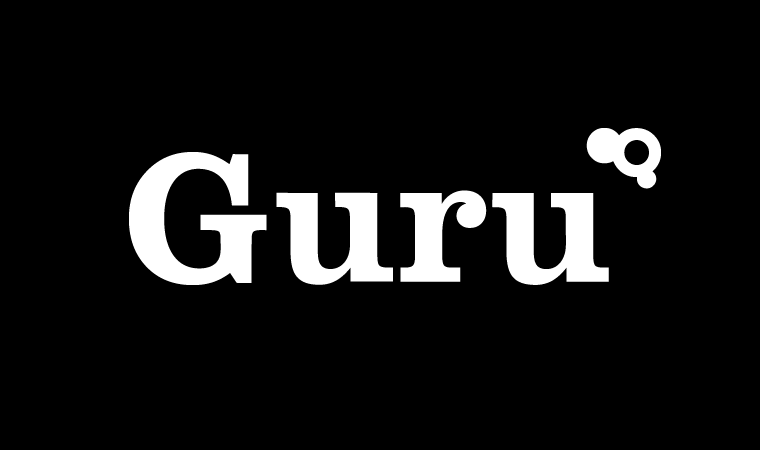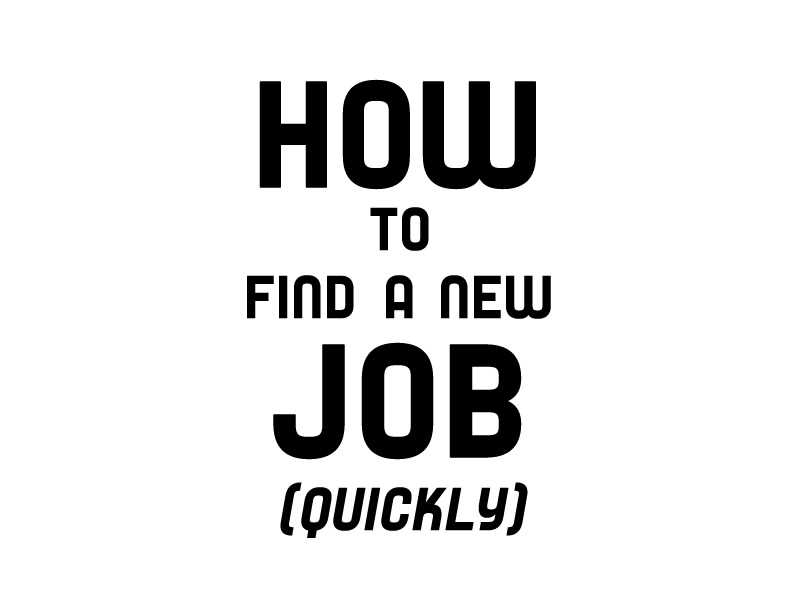In this article we explain how to find a new job quickly in a time where employees are becoming displaced from their employers and even their industries by the economic impact of Covid-19.
We are currently living in a time where there is a mass displacement of talent, never before have so many qualified and experienced employees found themselves all competing against one another for new jobs.
It can seem like a daunting time for a job seeker right now, yes there are less opportunities and yes more competition for them, but it’s worth remembering that many businesses are still thriving, and many are just in the process of readjusting and restructuring, which (if you know where to look) will present many more new and exciting opportunities in the weeks to come.
So let’s get started, here are 5 easy steps to help you find a new job quickly…
1. Evaluate Your Worth
Before any job searching takes place you need to understand your own worth, without knowing what your main skills, experience and assets are you won’t:
- Know how to write your CV correctly;
- Know what positions to apply for;
- Know what opportunities are right for you;
- Have confidence and clarity;
- Know how to convince employers your worth it.
Sit down and take a few hours to review your skills and to build a picture of where your values lie and what benefits you can bring to an employer. Completing a Career Development Plan Template is a great starting point (trust me this won’t be a wasted exercise), and will allow you to know where you’re heading and what values you have, oh and it will also help you avoid countless wasted hours when job searching and speaking to employers and recruiters.
TIP: Try asking past employers and colleagues for written references to build a wider understanding of your strengths and achievements, this can be a really great way to get a second opinion and re-affirm your skills.
2. Marginal Gains
When applying to positions it is far better to make 5 amazing applications than 50 average ones. So before you embark on your job search journey, get things organised and ship shape. Team Sky famously go to extreme lengths to identify and leverage marginal gains, from tweaking sleep patterns and dietary requirements to bike aerodynamics and more, they look to improve every area of weakness.
The aim is that all marginal gains add up into one big advantage. Job seeking is no different, if you can create a professional CV, produce a first-class LinkedIn profile, write the perfect cover letter and make applications to jobs the moment they go live you’ll beat the competition – just like Team Sky does!
Take Churchill’s advice and consider brevity when writing your CV (being concise goes a long way) and tools like grammarly can also be useful in reducing errors.
3. Searching for a Job
You may have heard the phrase “searching for a new job is a job in itself”, well there is real truth in this. If you want to find a new job quickly then you’re going to need to put the hours in and treat it seriously.
As you embark on your job search you’re going to need to set time aside each day to focus on the hunt. There are an array of tactics and methods you can adopt when searching for a new job that go way beyond using a job board or LinkedIn, from registering with job boards and applying to live vacancies to networking and finding hidden opportunities there are a lot of bases to cover.
Let us say I’m searching for Digital Marketing jobs, typing “Digital Marketing jobs in London” into Google is probably the obvious start for most job seekers, and it’s certainly an avenue to look at, however, it’s also the most trodden path. There is a whole world of opportunity out there and most of it lies elsewhere as the following graph explains…

The head of the tail represents only half of all the opportunities available, by searching further afield – delving deep into detailed google searches, company career pages and niche of job boards – you can uncover opportunities found further down the tail.
How to find a new job – The job search avenues to explore…
1. Live / Published Vacancies – Employers who are actively advertising their vacancies across job boards and with agencies. Many jobs are only advertised on one or two job boards, therefore, to avoid missing an opportunity register with multiple websites to cover all angles. Search beyond the large, mainstream job boards and look out for specialist agencies and niche job sites.
2. Hidden Vacancies – Employers with low recruitment budgets or those who are just starting out on the route to hiring, search company career pages and social media feeds for results.
Search social media channels for keywords such as “I’m hiring for …” / “we’re recruiting for…” or “New Vacancy AND …”
Within Google it is possible to search for recently updated company career pages, for example you can the following search to return all employers that use the workable platform…
site:apply.workable.com intitle:(Copywriter) London, UK
Be creative and adventurous in ways to search out and find new opportunities – Put the time in to find the opportunities that are right for you!
3. Making Speculative Inquiries – For the best talent companies will often make a position if the opportunity is great enough. Research and find businesses you really want to work for and make direct contact with them irrespective of if they have a vacancy or not. Build a list of companies that excite you and go after them, contact relevant people on LinkedIn or phone the offices, reach out directly and make yourself known. These types of approaches are hard to convert and can take longer to nurture, so if you’re not lucky straight away be persistent and circulate conversations with your contacts on regular basis so you’re at the forefront of their minds should an opportunity arise.
4. Networking – Reach out to your network of contacts to explore what opportunities they have (or are aware of). Publicly announce you are looking for work on LinkedIn and other social networks. Also, consider emailing all your connections through LinkedIn to ask if they or if they know of anyone hiring at the moment. Aim to do this regularly with different messages and updates on your progress, you might be surprised at how others might want to follow your job search journey. Over the coming days and weeks, you should aim to leave no stone un-turned, but remember, the aim is not just to “find a job” it is to find the right opportunity. Although things are a little competitive right now that does not mean your next career move should not still fall in line with your career path and values.
When discovering how to find a new job you’re going to need to be organised and disciplined to keep on top of all those searches and sites.
4. Job Search Speed is Critical
Current market conditions mean that employers are filling jobs quickly, for job seekers this means you need to get your applications in quickly, within the first few days but ideally on day one. Those that are quick off the mark will reap the benefits this brings. A quick application means you will be putting yourself in the hat for the first round of filtering (which in current times is likely to be the first and only round).

Configure alerts on job boards and Google Alerts to do the hard work for you. Define detailed searches to return new vacancies the moment they are posted and get your application in quick. Set aside time every day (if possible 2 or 3 times per day) to react to vacancies. Tweak and finetune your alerts / searches in order to keep things specific, you want your alerts to be 100% relevant so you can make the most of your time.
Relevancy is king, especially in an employer’s market – For the best chance of success apply to the vacancies that are most suited to you and your skills this way you will stand a far greater chance of receiving an interview. That’s not to say you shouldn’t widen out your job search and apply to other positions that interest you, but it’s worth remembering that the wider you cast your net the harder the competition will be against you.
5. Get Personal
For those who work in sales the phrase “people buy from people” will probably be familiar to you, and it’s so true, making a personal connection in any walk of life is a great feeling and can help you go far, another truism in life is “it’s not what you know but who you know”.
Over the years it has always amazed me just how few people follow up their job application with a phone call, but the ones that do never fail to make an impression. Honestly speaking I would say only 1 in 500 applicants chase a job application by phone.
Big mistake. The mindset of most candidates is “I don’t want to bother them, they’re busy and probably have strict recruitment processes” however, the mindset of an employer can actually be quite different, they want to hear from brilliant, passionate and relevant candidates. Speaking to them over the phone gives you a unique opportunity to sell your skills, experience and passion for their company.
If you want to make an impression and to stand out from the swathes of other hopefuls then you need to phone up the hiring manager and get personal. I can understand that not everyone is comfortable doing this, however, you can still make a direct connection on LinkedIn and enquire about a call this way, it is a softer approach but can still work.
The aim is not to come across as pushy, your just politely enquiring and trying to spark up a conversation, be polite, confident and read the situation as it presents itself.
So there you have it!
Five tips on how to find a new job and to turn this crisis into an opportunity which finds an employer that suits you. If you’ve enjoyed this piece, why not take a look at the Guru Blog for more pieces from Richard, or connect with him on LinkedIn here.
Article Updated: 08/09/21

